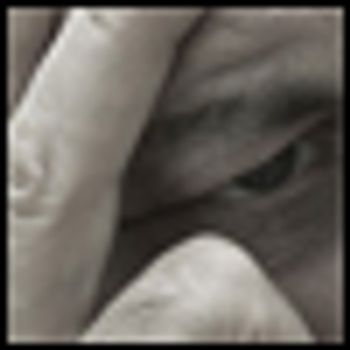
Being a Therapist features intimate portraits of psychotherapists in their own work spaces. An excerpt of his interview with Dr Martin S.

Being a Therapist features intimate portraits of psychotherapists in their own work spaces. An excerpt of his interview with Dr Martin S.

Given the likelihood that insufficient numbers of patients will be available for a randomized controlled trial of MAOIs in refractory depression or atypical depression, we must still rely on consensus guidelines and expert opinion.

Unfortunately, brilliant psychiatrists continue to put on display their ignorance of the Second Amendment and its history.

We are told that we must allow the massacre of innocent Americans--including children--with easily obtained firearms because "it is the price we must pay for freedom."

DSM-5 presents psychiatry with a potential “reset button” for diagnostic reliability.

Two yellow feathers and a skull. . . drop from the sky and fall on the brown . . . scar of trail, a sharp-shinned hawk

"You turn on the television, and violence is there. You go to a movie, and violence is there."

Four years ago, the winning presidential slogan went: “Yes, we can. Yes, we can.” We haven’t heard that slogan this time around. Maybe we’ve come back down from this idealism to a more sobering reality.

Each wound speaks its own language.

The article focuses on eating disorders in males and presents information on similarities and differences between males and females as they relate to risk factors, clinical presentation, and treatment.

Boys with ADHD can present with different cognitive and behavioral patterns than girls with ADHD. Despite these factors, girls with ADHD remain at significant psychosocial risk into adulthood.

Improving our kids performance in school won't come from some vague, quixotic psychological fix. It requires they have better lives and better schools and that means us becoming a fairer society.

A recent case has caused a flurry of opposing opinions. Not surprisingly, transgender advocacy groups have praised the judge's decision that the inmate in question has an eighth amendment right requiring the state to support and pay for sex reassignment surgery.

A poetry reading by psychiatrist Richard Berlin, MD.

When this physician published an article containing his case summaries of 3 women with dementia praecox, he made it clear that this was a disease that neurologists and physicians in general practice could easily and reliably diagnose by following his diagnostic procedures.

Autism and schizophrenia may present as 2 separate disorders that need to be differentiated, or treated as comorbid conditions. It is important to remember that some individuals may have both disorders, which has implications when designing appropriate biopsychosocial interventions.

With understandable urgency, Secretary of Defense Leon Panetta has made suicide one of his top priorities, instructing commanders at all levels to feel acutely accountable for it. The numbers are startling. On average 1 active duty soldier is killing himself each day--twice the number of combat deaths and twice the civilian rate.

Earlier this year the American College of Physicians had to spell out that it is ethically appropriate for physicians to talk about cost with patients. This speaks to how far we as physicians have to go to be fully engaged in this conversation.

It would not be overstating matters to say that during his long career, Dr Thomas Szasz has been one of the most controversial figures in the psychiatric profession.

What are the advantages of adjunctive benzodiazepine therapy in comorbid depression and anxiety? Which therapy has the strongest evidence base for treating patients with late-life depression? These and more in this quiz.

Disparate means of accessing marijuana complicates the evaluation of the quality, purity, and potency of cannabis.

R.I.P. Rest Inspiring Psychiatrists. I am grateful for having known you.

Is the expression “mental illness” merely a metaphor? If so, does that tell us something about the persons we identify as having a mental illness? To clinicians who deal with devastating psychiatric disorders every day-and to those afflicted with these conditions-these questions may seem like a lot of semantic nonsense.

There is promising evidence that some complementary and alternative medicine therapies can alleviate ADHD symptoms. These may include herbals such as Bacopa and Pycnogenol, as well as supplements such as zinc.

In early September of 2012, a psychiatric colleague and friend passed away. Thomas Stephen Szasz, MD, was Professor Emeritus of Psychiatry at the SUNY Upstate Medical University in Syracuse. Here is a personal reflection of the man I met, learned from, and considered a friend and colleague.

Suicide involves a complex array of psychological, biological, social, and cultural factors, and it is particularly likely to occur during periods of individual, family, and socioeconomic crises associated with loss and shame. What 3 psychiatric disorders are most often associated with suicide?

Do not be surprised if you hear more about hybrid models of psychiatric diagnoses included in DSM-5. The categorical and dimensional model approaches are 2 sides of the same coin as you look at the same patient from 2 different angles.

Dr Thomas Szasz dies at 92.

The new annual suicide rate of 12.0 per 100,000 people translates into 100.8 suicides per day and 1 suicide every 14.3 minutes. Here, you will find tools and tips to help identify patients at risk.

Clinical tools and intervention options are available to the psychiatrist treating the suicidal patient. The severity of the patient’s psychiatric condition and the clinician’s experience and training will determine the interventions.